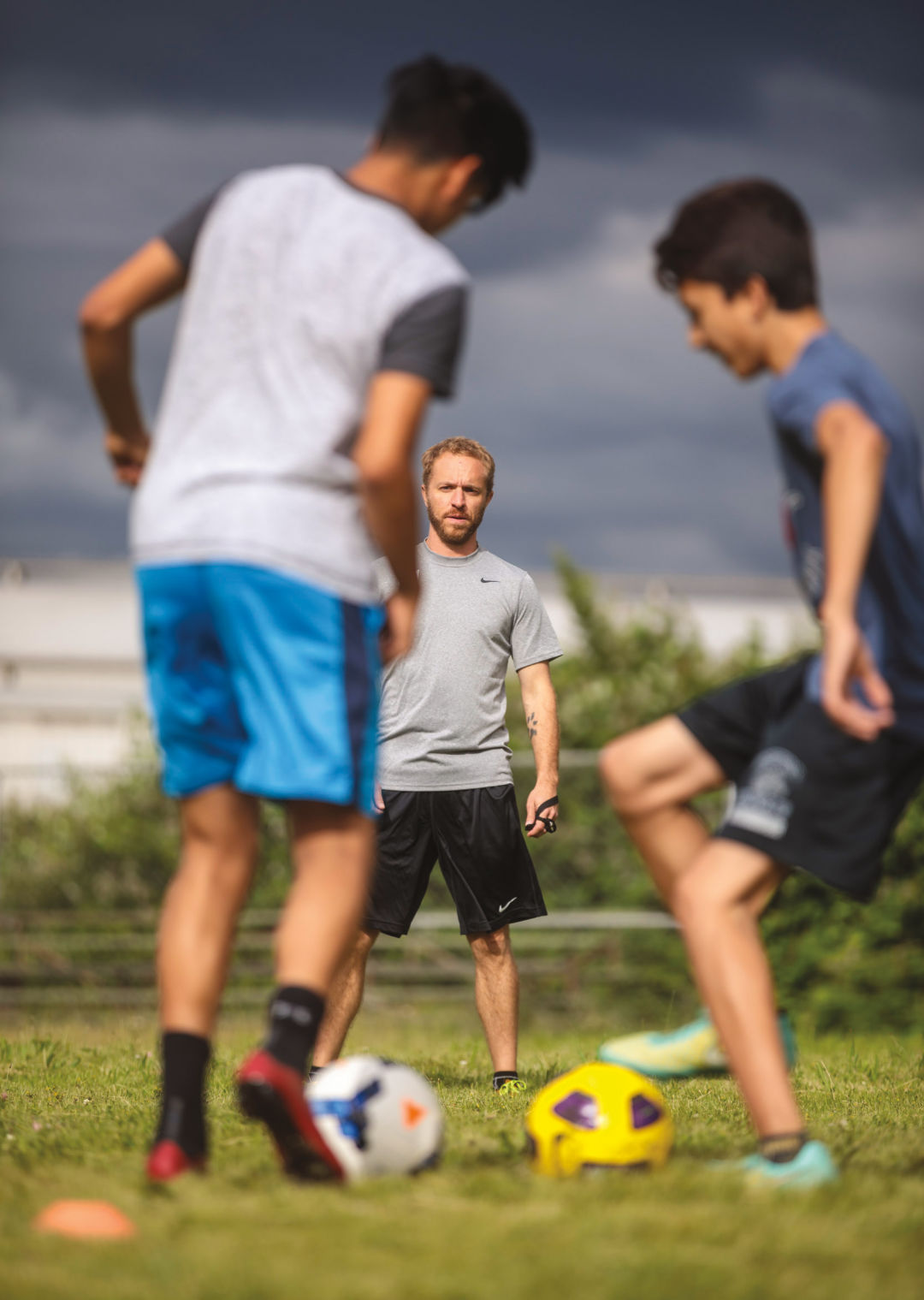Meet the Portland Coach Breaking Down Barriers on the Soccer Pitch

Coach Kaig Lightner in his element
Image: NASHCO PHOTO
Kaig Lightner had coached for nearly two decades when, in 2013, he decided to start his own youth soccer club—one that didn’t center on the white, middle-class students with whom he usually worked.
“I started looking around at the kids that were playing, and it was just not a diverse group,” he says. “After doing social work with a lot of kids from marginalized and low-income communities, I knew there were kids not getting access to all sort of things.”
“The ironic part is that, around the world, soccer is one of the most inclusionary sports,” Lightner explains. “In the United States, youth soccer has turned into a money-making commodity, where the fees parents pay entirely support the club’s existence.”
Run as a nonprofit, Lightner’s Portland Community Football Club reaches out to kids from low-income families, and also explicitly welcomes LGBTQ players and coaches. As a transgender man, Lightner also knows a thing or two about being excluded from sports. In May, a YouTube clip of him coming out to his young players went viral, racking up more than 100,000 views and garnering supportive comments from across the country and overseas. In the video, titled “Authenticity,” Lightner shares his own experiences as an athlete: “I got told a lot of things about being a soccer player as a girl,” he says in the clip. “I wasn’t good enough, I wasn’t strong enough, or I was too strong, I acted too much like a boy.”
PCFC raises money through grants and donations—Nike recently chipped in 1,000 soccer balls—and provides jerseys and shin guards. The club currently serves roughly 50 students ages 6 to 17, the majority of whom are non-white, with many Latinos and African refugees.
A licensed social worker, Lightner aims to provide more than just soccer tips to his team. The day after the 2016 presidential election, he found himself offering resources to Latino and immigrant parents. He’s also created a junior coaching program that offers job training and money management skills to teenage players. And he’s still looking for ways to combat soccer’s traditional gender roles, whether by recruiting more female players or coming out to the club as transgender.
“I’m in no way thinking I’m solving all of the problems of these communities,” Lightner says. “I’m like, I’m just providing something—please come and experience it with me. Let’s work together.”




